
Knee Dislocation Surgery & Treatment in San Antonio
Knee vs. Patellar Dislocations: Key Differences
When discussing knee health, distinguishing between knee dislocations and patellar dislocations is crucial, as they affect different parts of the knee and vary in severity. Patellar dislocations involve the kneecap slipping out of its position, often due to sports injuries or sudden twists. These are less severe and can be managed with therapy, immobilization, or sometimes surgery. Knee dislocations, however, entail a more serious scenario where the knee joint itself (femur and tibia) becomes misaligned. This emergency requires immediate care to prevent complications, possibly including surgery and a longer rehab process.
In essence, while both conditions concern knee displacement, patellar dislocations are generally about the kneecap and less severe, whereas knee dislocations involve the main joint, are more serious, and demand urgent medical intervention. Understanding these differences is vital for accurate diagnosis, treatment, and prevention strategies.
Knee Dislocation Symptoms
Severe pain in the knee area
Visible deformity or misalignment of the knee joint
Swelling and bruising around the knee
Inability to move the knee joint or bear weight on the affected leg
Potential numbness or weakness in the foot, indicating nerve damage
Patellar Dislocations Symptoms
Sudden, sharp pain at the front of the knee
Swelling and tenderness around the kneecap
Visible bulge or lump on the side of the knee where the kneecap has dislocated
Difficulty bending or straightening the knee
A feeling of instability or the knee giving way when attempting to stand or walk
What are knee Dislocations?
Knee dislocations are severe orthopedic conditions characterized by the displacement of the femur (thigh bone) and tibia (shin bone), the two main bones that form the knee joint, from their normal alignment. This type of injury typically occurs as a result of high-impact trauma, such as from sports injuries, vehicle accidents, or significant falls, leading to the potential for extensive damage. The knee's critical ligaments, including the anterior cruciate ligament (ACL), posterior cruciate ligament (PCL), medial collateral ligament (MCL), and lateral collateral ligament (LCL), are at risk of being stretched or torn during a dislocation. Additionally, the surrounding blood vessels and nerves may also be compromised. Symptoms immediately following a knee dislocation include intense pain, immediate swelling, and a visible deformity of the knee joint, along with an inability to move the knee. Immediate medical attention is crucial for a knee dislocation to accurately diagnose the extent of the injury and to prevent further damage to the knee structures.
Causes of Knee Dislocations
Knee dislocations, a critical concern within orthopedic medicine, emerge primarily due to the knee joint's vulnerability to external forces. These dislocations reflect the femur and tibia's sudden and unnatural separation, instigated by various catalysts. While the previous section outlined the injury's nature and immediate consequences, understanding the multifaceted causes behind knee dislocations is crucial for both prevention and awareness.
Below are the some of the causes and situations that can lead to knee dislocations:
High-Velocity Impacts
Automotive Collisions: The intense force from vehicle collisions stands as a predominant cause, where the direct or indirect impact can forcefully dislodge the knee joint.
Falls: Specifically, those from considerable heights, directly impact the knee's structural integrity, pushing the bones out of alignment under the body's weight.
Sports-Related Injuries
Impact and Contact Sports: Athletes involved in sports with frequent physical contact (e.g., football, rugby) or activities requiring sudden jumps and landings (e.g., basketball, volleyball) face a heightened risk of knee dislocations.
Dynamic Sports and Activities: Sports that involve quick pivots or agile movements (e.g., tennis, soccer), can predispose athletes to knee injuries, including dislocations.
Accidents and Missteps
Simple actions such as stepping wrongly or tripping can lead to knee dislocations, emphasizing the importance of caution in daily activities.
The risk posed by rapid changes in direction during physical activities highlights the importance of agility training and proper footwear to enhance knee stability.
Pre-existing Conditions
Individuals with ligamentous laxity or prior knee injuries are more susceptible to dislocations, pointing to the value of regular medical check-ups and preventive exercises.
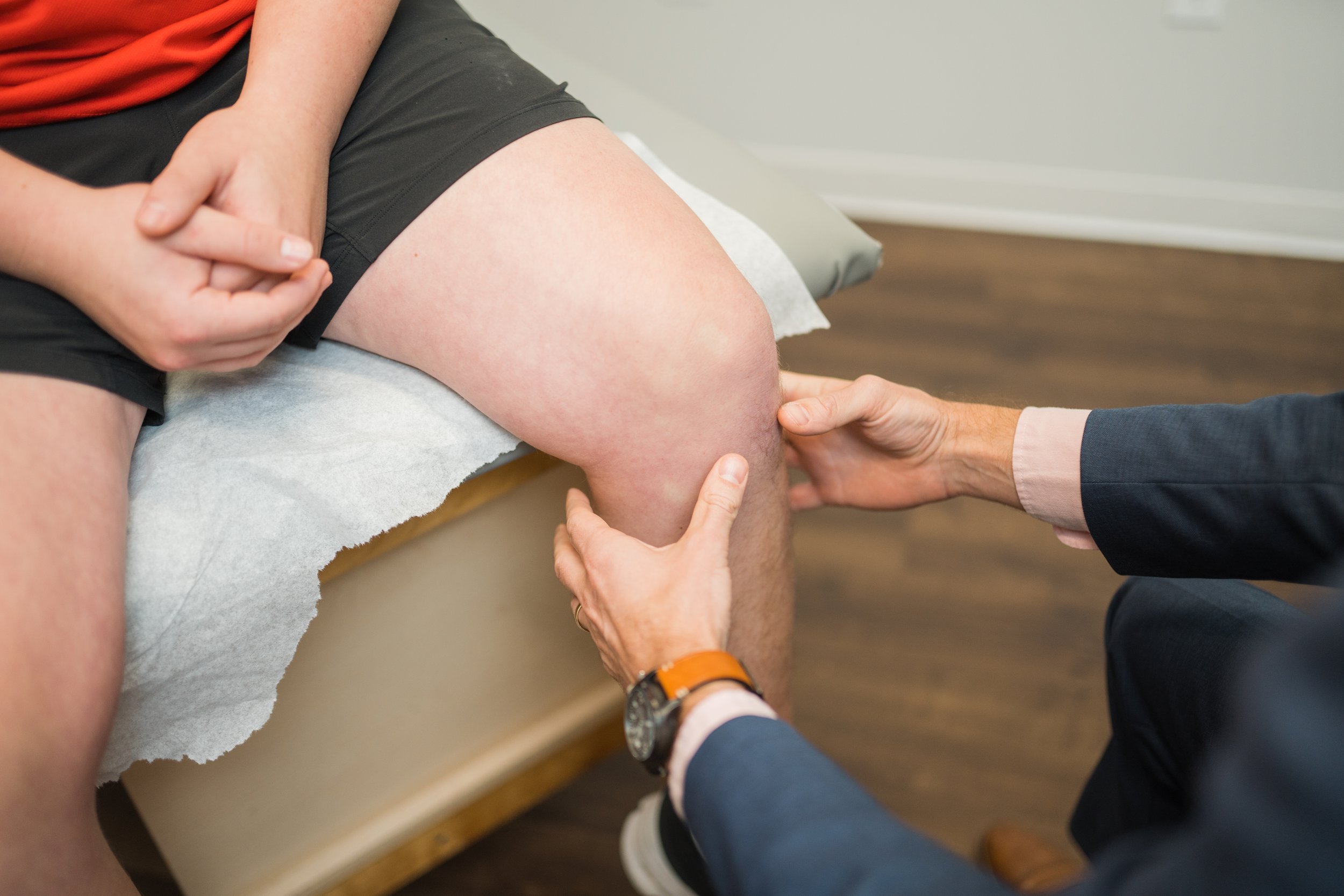
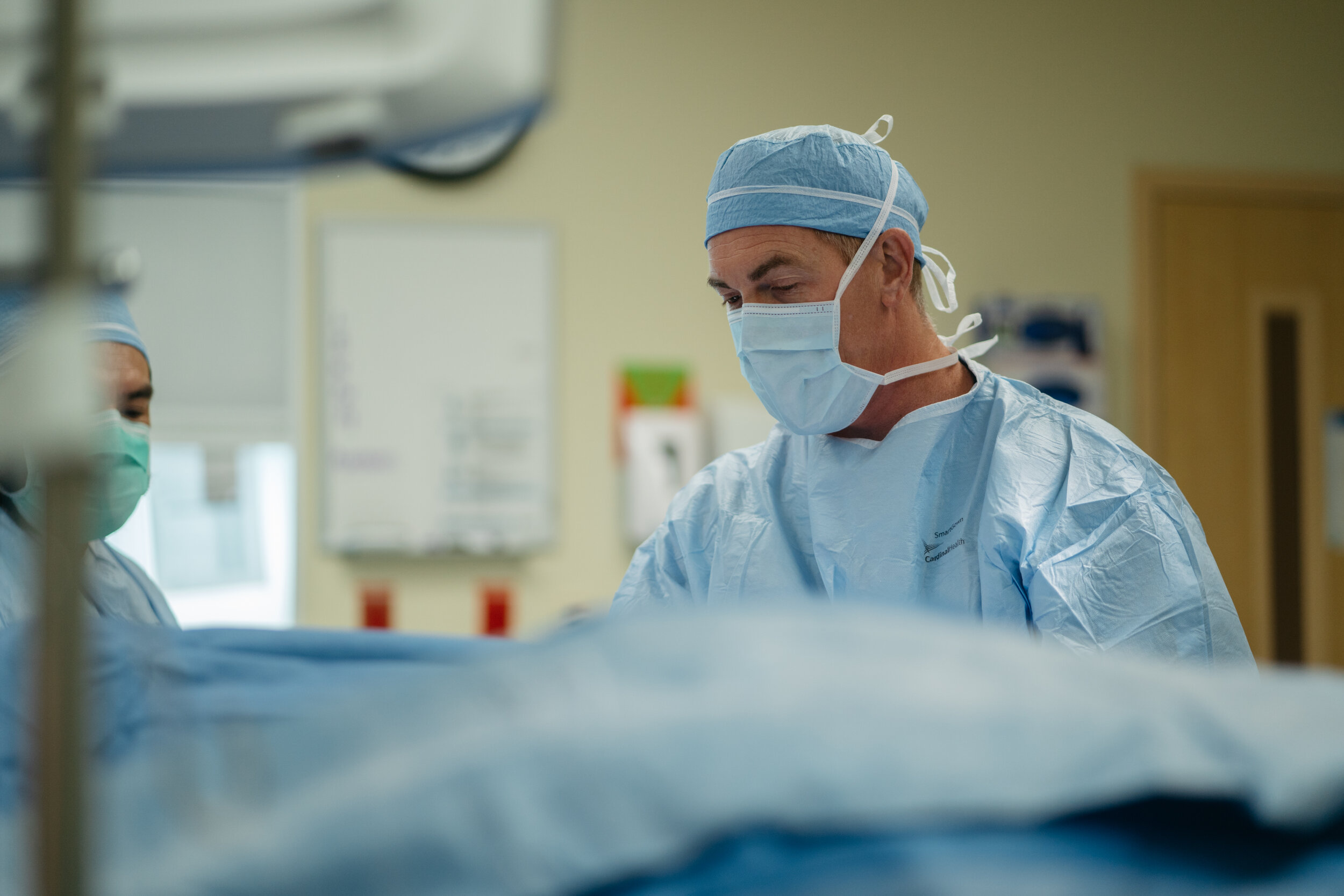
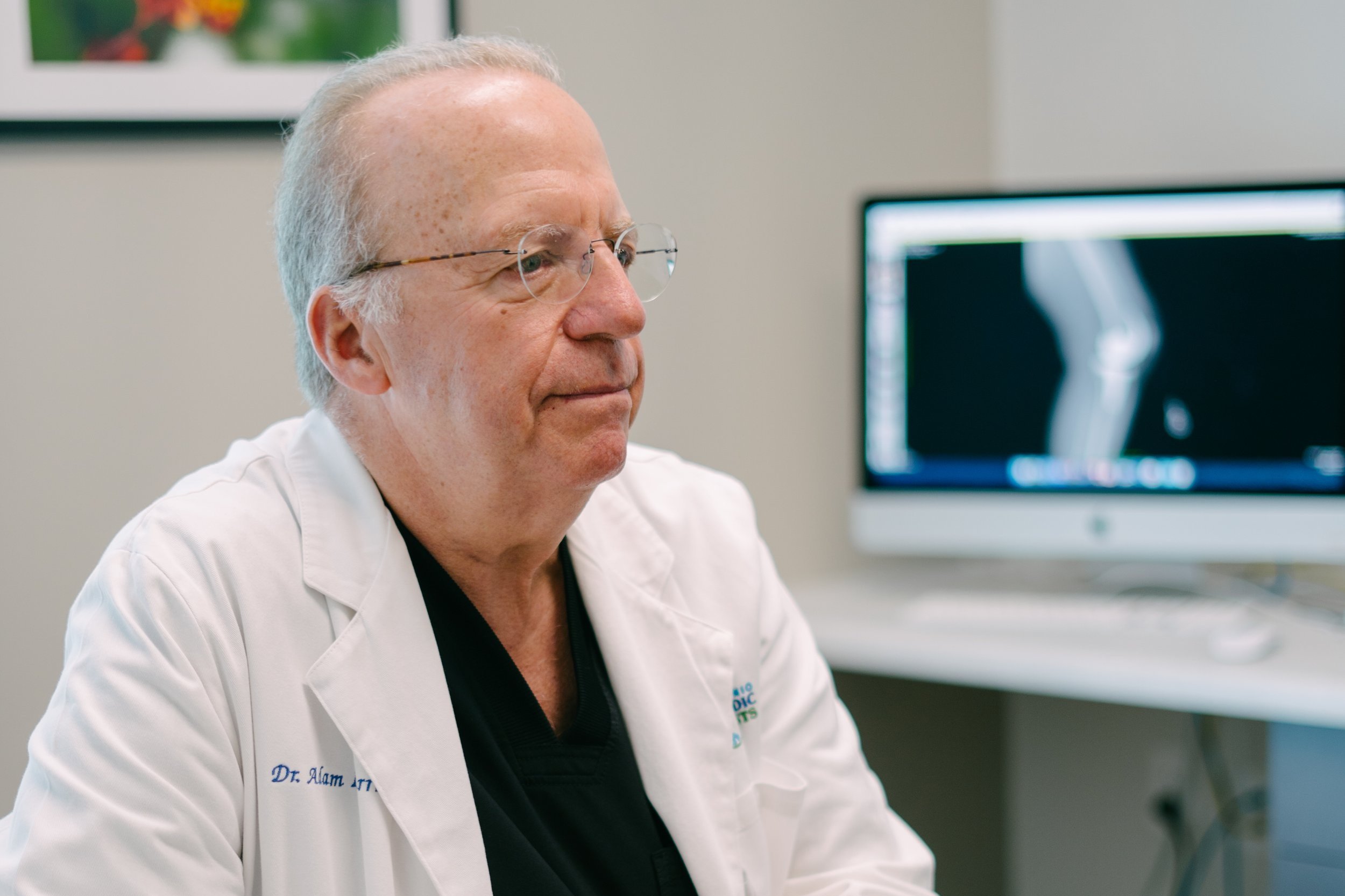

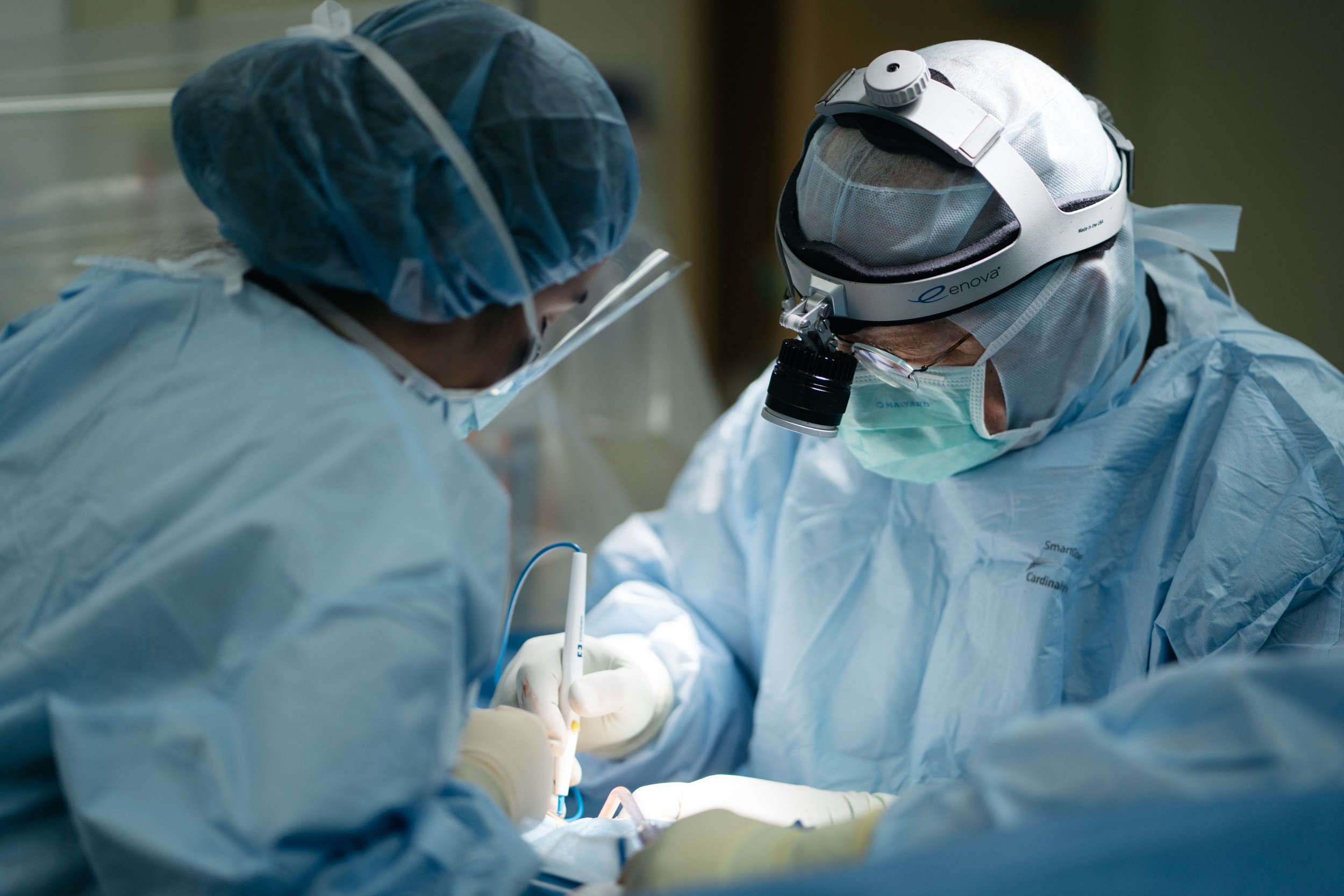
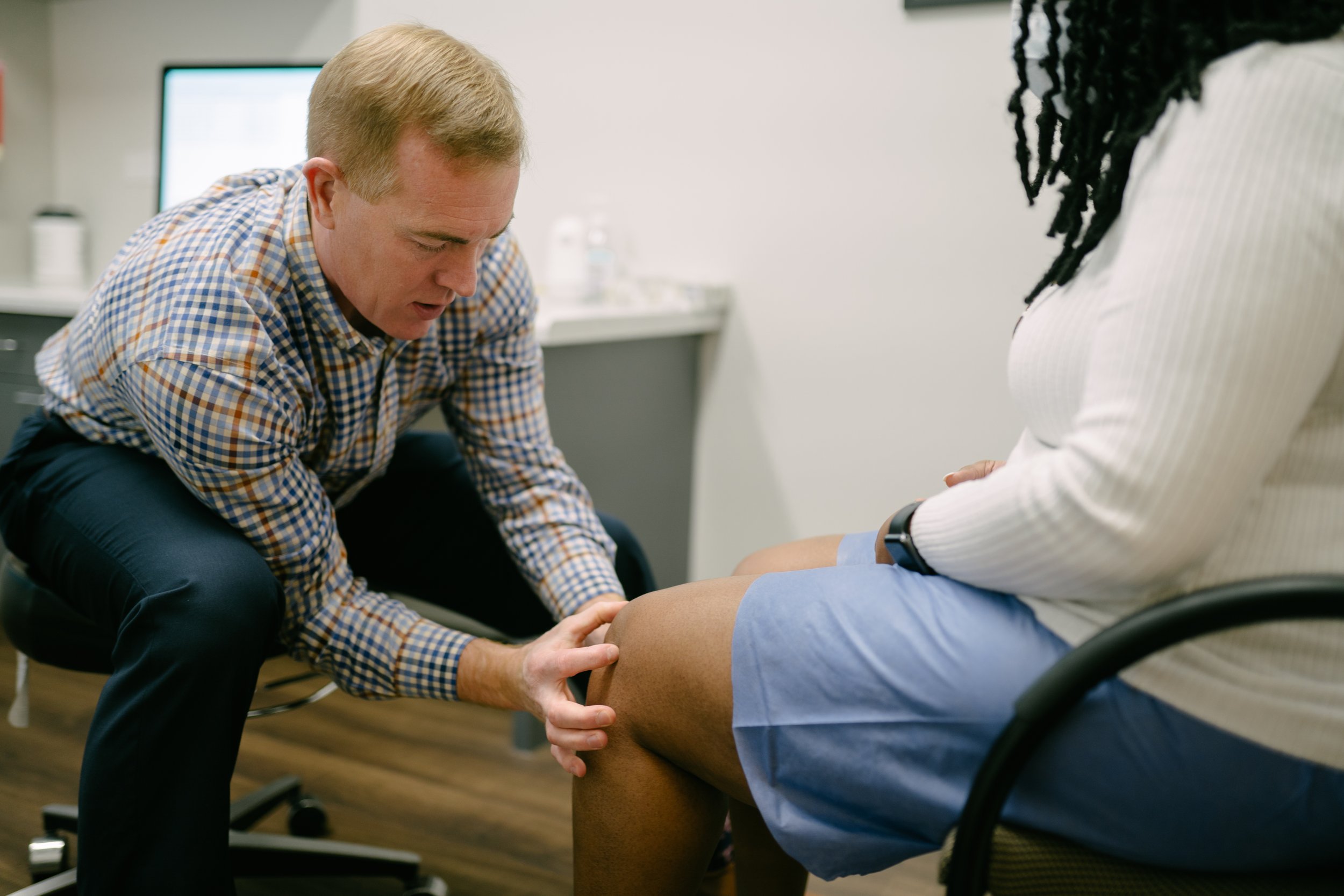
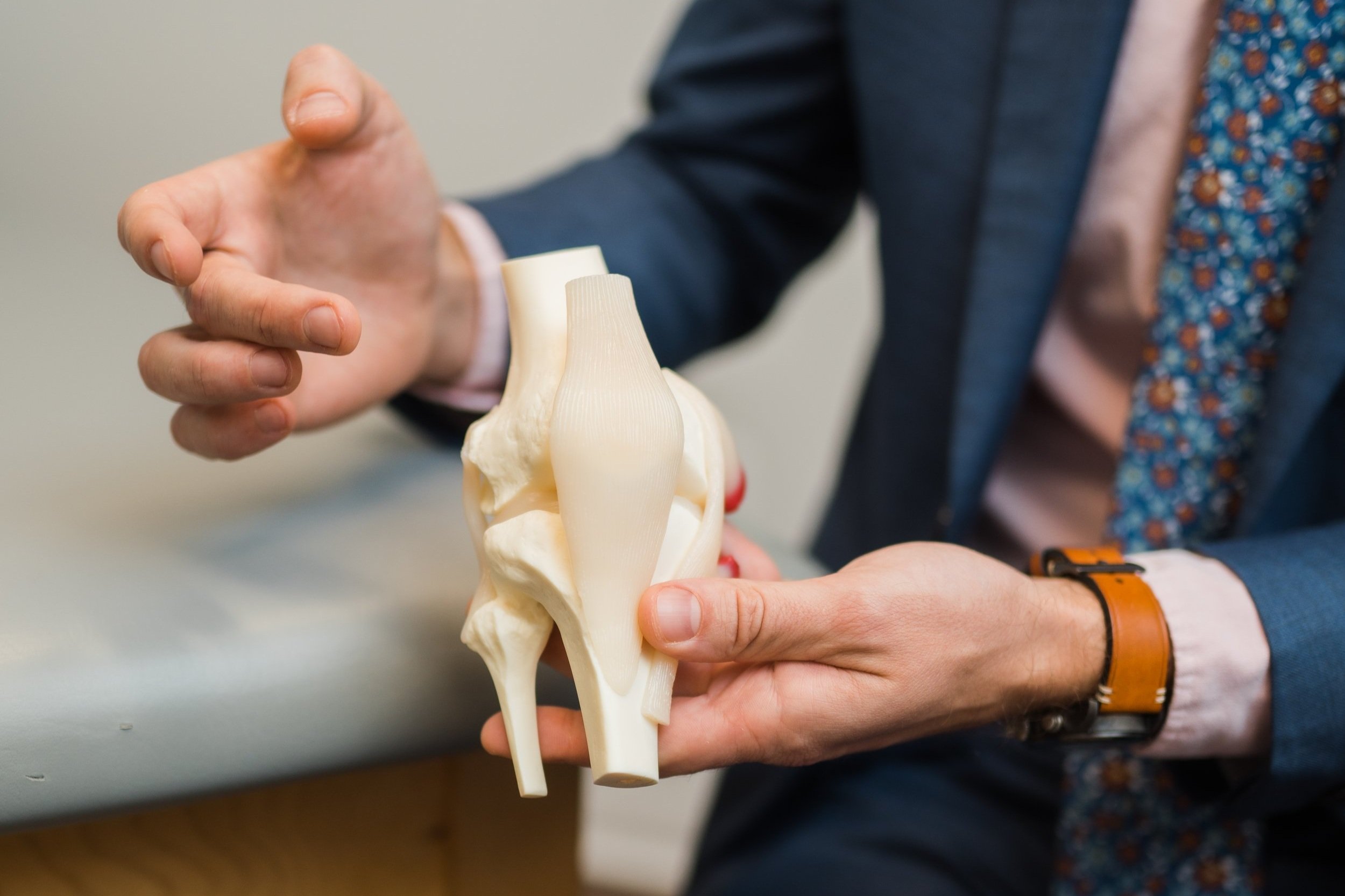

Treatment Options for Knee Dislocations
1. Non-Surgical Treatment:
Reduction: Immediate manual realignment of the dislocated knee by a healthcare professional, often followed by immobilization.
Immobilization: Use of a brace or splint to keep the knee stable and allow ligaments to heal.
Physical Therapy: After initial healing, targeted exercises help restore strength, flexibility, and range of motion.
2. Surgical Treatment:
Ligament Repair/Reconstruction: Surgery to repair or reconstruct torn ligaments is common, especially if non-surgical treatment fails to stabilize the knee.
Vascular Surgery: In cases where blood flow is compromised, vascular surgery may be necessary to repair damaged vessels.
3. Rehabilitation:
A comprehensive rehabilitation program is critical, often lasting several months, to fully recover knee function and strength.
How Our Fellowship Trained Sports Medicine Surgeon takes on Revision Acl surgery
MEET OUR KNEE SPECIALISTS
-

Adam I. Harris, MD
Board Certified, Fellowship Trained Orthopaedic Surgeon
-

Brandon Broome, MD
Board Certified, Fellowship Trained Orthopaedic Surgeon
-

Sean Marx, MD
Fellowship Trained, Sports Medicine Orthopaedic Surgeon

